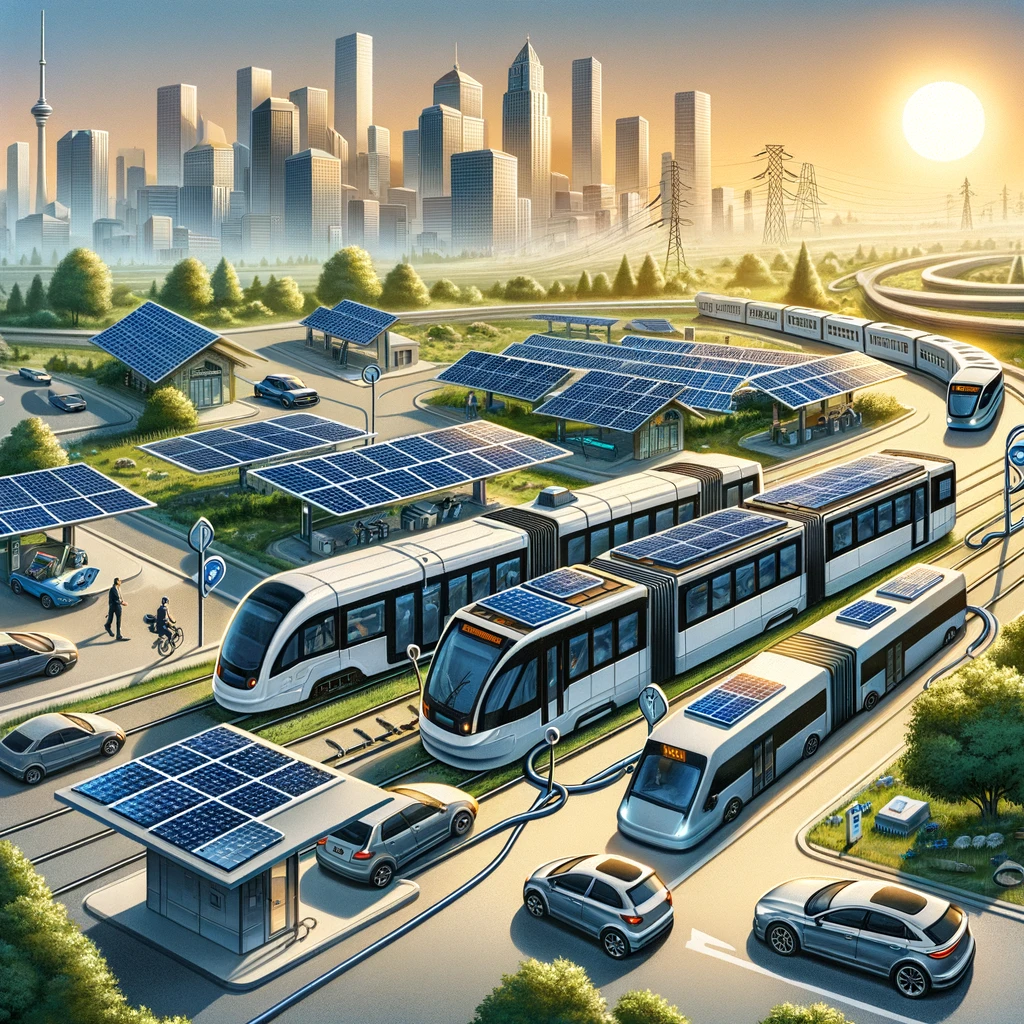
In the quest for sustainable and environmentally friendly modes of transportation, solar-powered transportation stands out as a beacon of innovation and potential. This emerging field promises to leverage the abundant and renewable energy of the sun to power vehicles, from cars and buses to trains and even aircraft. This article provides a comprehensive analysis of the key factors that impact the development and adoption of solar-powered transportation, exploring the trade-offs involved, the challenges faced, and the significance of considering environmental impacts in decision-making processes.
Key Factors Influencing Solar-Powered Transportation
Technological Advancements
The efficiency of solar panels and energy storage systems is paramount. Recent breakthroughs in photovoltaic (PV) technology have significantly increased the conversion efficiency of solar panels, making them more practical for transportation applications. Similarly, advancements in battery technology have improved energy storage capabilities, allowing vehicles to operate longer on stored solar energy.
Economic Considerations
The initial investment in solar-powered transportation can be high, reflecting the cost of solar panels, energy storage systems, and the vehicles themselves. However, the long-term savings on fuel costs and the potential for decreased maintenance expenses present a compelling economic argument. The trade-off between upfront costs and long-term savings is a critical factor for consumers and businesses alike.
Infrastructure Development
The deployment of solar-powered transportation requires a supportive infrastructure, including solar charging stations and maintenance facilities. The development of this infrastructure poses a chicken-and-egg problem: widespread adoption of solar-powered vehicles is needed to justify the investment in infrastructure, yet such adoption is contingent upon the availability of supportive infrastructure.
Regulatory and Policy Frameworks
Government policies and regulations play a crucial role in facilitating the growth of solar-powered transportation. Incentives for renewable energy adoption, subsidies for solar technology, and regulations that favor environmentally friendly transportation solutions can accelerate the shift towards solar-powered vehicles.
Balancing Trade-offs and Exploring Challenges
Balancing Efficiency and Practicality
One of the main challenges in solar-powered transportation is balancing the efficiency of solar panels with the practical design and performance needs of vehicles. Solar panels need to be integrated into vehicles in a way that maximizes sun exposure without compromising aerodynamics or aesthetics.
Weather Dependency and Geographical Limitations
Solar-powered transportation’s reliance on sunlight poses challenges in regions with less sunny weather or during periods of extended cloud cover. This variability necessitates the development of hybrid systems that can switch to alternative energy sources when solar power is insufficient.
Technological and Economic Barriers
The pace of technological advancements in solar power and energy storage, coupled with economic barriers such as high initial costs and the slow development of infrastructure, can hinder the rapid adoption of solar-powered transportation. Overcoming these barriers requires concerted efforts from governments, industry, and research institutions.
Environmental Impact Considerations
The environmental benefits of solar-powered transportation are significant, offering the potential to reduce greenhouse gas emissions, decrease air pollution, and lessen dependency on fossil fuels. However, the environmental impact of manufacturing solar panels and batteries, including the use of rare earth elements and the generation of electronic waste, must be carefully managed. A holistic approach that considers the entire lifecycle of solar-powered transportation technologies is essential for maximizing their environmental benefits.
Conclusion
Solar-powered transportation represents a promising frontier in the quest for sustainable mobility. Despite the challenges and trade-offs involved, the potential environmental and economic benefits make it a compelling area for continued innovation and investment. As technological advancements continue to improve the efficiency and affordability of solar-powered vehicles, and as infrastructure and regulatory frameworks evolve to support their adoption, the dream of widespread solar-powered transportation becomes increasingly attainable. The importance of considering the environmental impact of these innovations cannot be overstated, ensuring that the move towards solar-powered transportation contributes positively to the broader goals of sustainability and environmental stewardship.

Alex Rivera
Alex RiveraAlex Rivera is a dedicated environmental writer and editor with a degree in Environmental Studies from the University of Northern Iowa. With over eight years in the field, Alex specializes in topics ranging from renewable energy and climate technology to sustainable living practices. Known for combining thorough research with personal experiences, Alex's work is both informative and relatable. Their commitment to promoting a healthier planet shines through in every article, making them a respected voice in environmental journalism.
